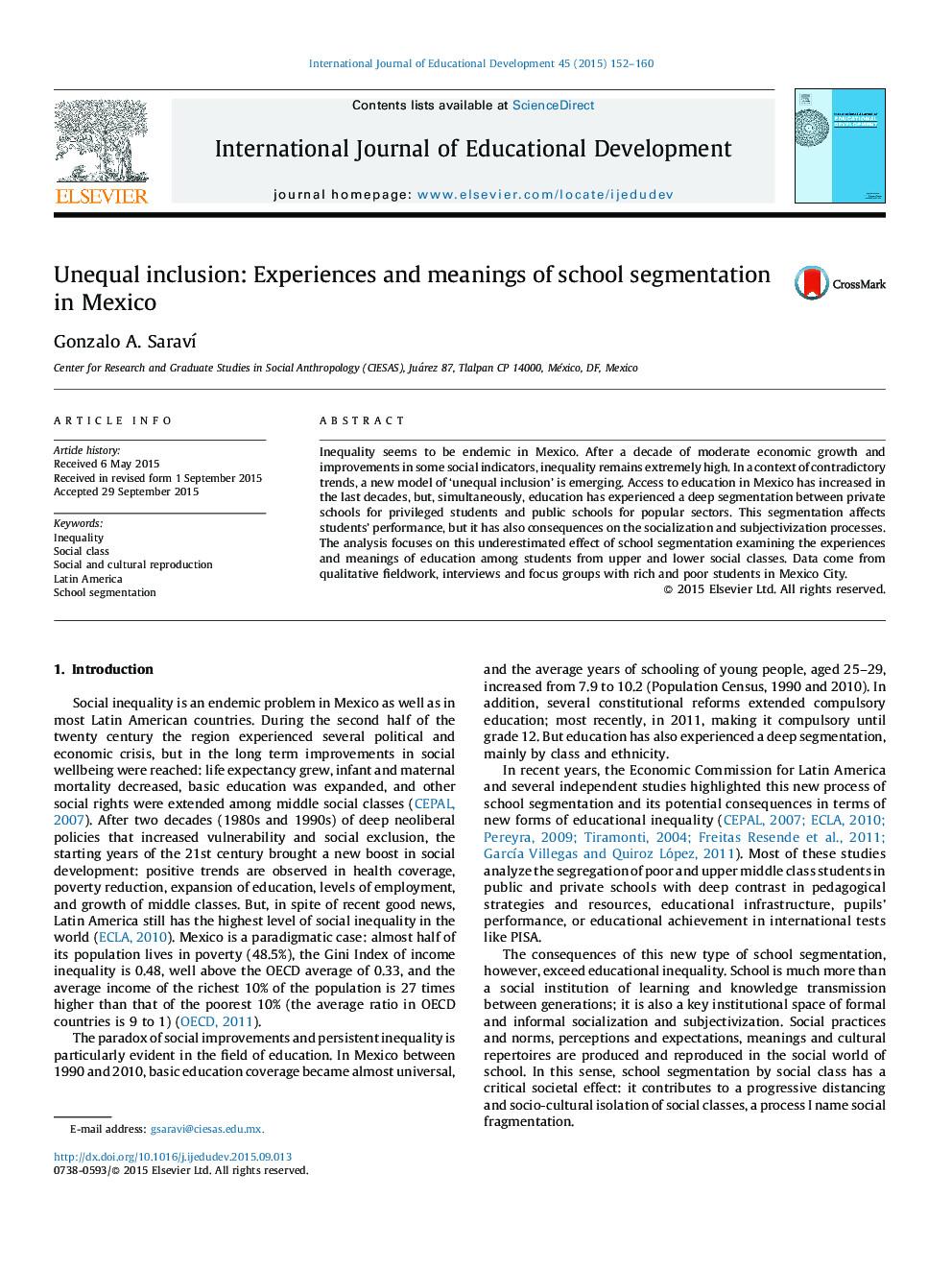| Article ID | Journal | Published Year | Pages | File Type |
|---|---|---|---|---|
| 356015 | International Journal of Educational Development | 2015 | 9 Pages |
•The school segmentation increases isolation and distancing of social classes.•The expansion of education has meant a process of unequal inclusion.•The public–private school divide is a major source of social inequality.•Social classes have differentiated experiences and meanings of education.•Education by itself cannot reduce inequality.
Inequality seems to be endemic in Mexico. After a decade of moderate economic growth and improvements in some social indicators, inequality remains extremely high. In a context of contradictory trends, a new model of ‘unequal inclusion’ is emerging. Access to education in Mexico has increased in the last decades, but, simultaneously, education has experienced a deep segmentation between private schools for privileged students and public schools for popular sectors. This segmentation affects students’ performance, but it has also consequences on the socialization and subjectivization processes. The analysis focuses on this underestimated effect of school segmentation examining the experiences and meanings of education among students from upper and lower social classes. Data come from qualitative fieldwork, interviews and focus groups with rich and poor students in Mexico City.
